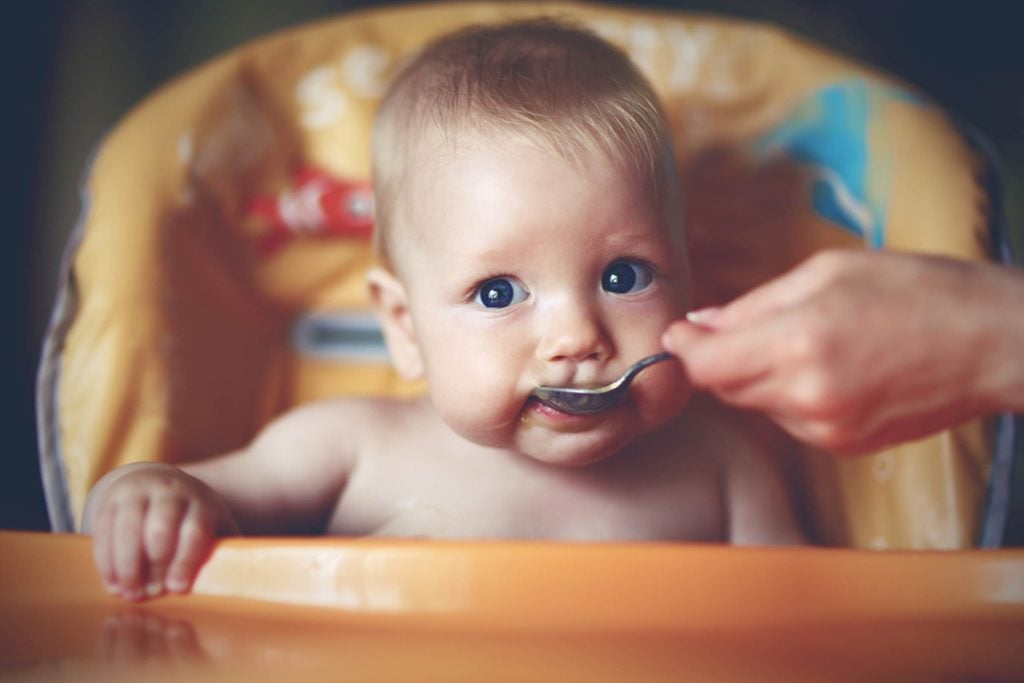This Is Why You Should Never, Ever Blow on Your Baby’s Food
Updated: Nov. 07, 2017
That touching act could put your kid's health at risk.
 Your child’s health is probably your first priority, but some little acts of love could actually put babies’ dental health at risk, even before their first teeth come in. Sounds weird, but cavities can actually be contagious.
Your child’s health is probably your first priority, but some little acts of love could actually put babies’ dental health at risk, even before their first teeth come in. Sounds weird, but cavities can actually be contagious.
When babies are born, their bodies haven’t been exposed to Streptococcus mutans, bacteria that produce lead to cavities when they leave acid while feeding on leftover food on teeth. Coming in contact with that bacteria can set your baby up for cavities even before you see signs of teeth, says Art Nowak, DMD, former president of the American Board of Pediatric Dentistry. Here are 9 clear signs of a cavity that adults should know, too.
“As soon as the tooth erupts, bacteria start developing plaque,” Dr. Nowak tells CNN. “Whether it’s from the mother’s milk or formula, activity starts inside that plaque. In no time at all, that activity creates acid and that starts the whole disease process. At five, six, seven months, things are starting to happen.” (By the way, this is why you should never use your kid’s toothpaste.)
A child’s teeth are most vulnerable to those bacteria when they’re just starting to develop, pediatric dentist Jane Soxman, DDS, tells NBC.
Here’s where you come in: One Australian study found that most babies and toddlers pick up Streptococcus mutans from their moms. The bacteria is spread when parents share saliva by blowing on their kid’s food, eating from their spoon, and even kissing their babies on the mouth. (Check out these other 30 everyday mistakes that cause tooth decay.)
Practicing good dental hygiene yourself and avoiding sharing saliva with your baby can help. (Don’t miss these other 10 products you should never use on your baby.) But Dr. Soxman says another preventative measure can be even more helpful. “You could do just about everything as long as you wipe that baby’s mouth out repeatedly with a clean wet cloth,” she tells NBC. “I tell parents to wipe the baby’s mouth out as often as they change the diaper. Wipe the tongue, the teeth, and the cheeks from infancy on. Then the colonies of bacteria won’t be established.”
Looking for more? Check out these other 11 things your dentist wishes you knew (besides just flossing more).
[Source: The Health Site]